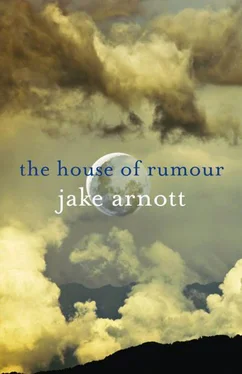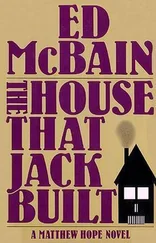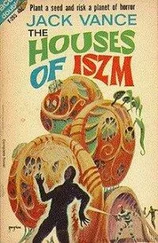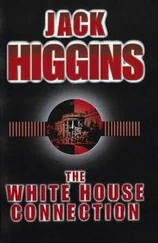There were arguments on the set over Dexter’s suggestion that Zoltar, our ‘dissident’ alien, should discover the good things about the American way of life. This wasn’t in the original script and Nemo wasn’t happy. But when Dexter proposed that Sharleen’s part be made bigger, that she should show Zoltar the benefits of our great nation, Larry was only too happy to write new scenes for her. I was worried that this might be too much for Sharleen to carry.
‘Oh, she can’t act, but then she doesn’t have to,’ Dexter reassured me. ‘She believes in this stuff. It gives her this real intensity.’
‘Really?’
‘Oh yeah. She thinks she’s seen one.’
‘What?’
‘A flying saucer. She has all these strange stories about her childhood too. She thinks Larry’s a genius. I tell you, Sharleen’s a whole project in herself.’
Soon after that Nemo stopped coming to the set, though Larry never missed a day’s shooting. I wasn’t happy about him and Sharleen falling in love but it was none of my business and I was far too busy to do anything about it. Dexter began to leave things to me with the filming but he would always come to watch the dailies. He was already planning his post-production strategy. He had decided that he would instigate rumours about the film: that the alien language used by Zoltar when he is aboard his ship is an occult incantation; that the mention of an air force report concerning flying saucer sightings refers to an existing top-secret memorandum (Dexter even suggested that a copy of this could be forged and used at a later date). His cleverest trick was to put about the story that we had used actual footage of a flying saucer landing as part of the movie. It meant that some of the special effects sequences were to be made deliberately blurred.
It was my idea to use Jack Parsons’ pyrotechnics company for these scenes. I knew he’d understand what we were after and would get it right. He believed in these things, of course. He told me that it was no coincidence that the spate of flying saucer sightings began just after he had been performing magical workings in the Mojave Desert. ‘We opened a portal,’ he said, ‘and something flew in.’ Dexter, of course, loved this notion and did nothing to discourage it. It was odd for me, to be with Jack again after all that had happened. It was astonishing really, though I just felt a calm detachment. But he was bitter at the way things had turned out: other people who had worked on the Jet Propulsion Laboratory’s early rocket tests had also lost jobs in the McCarthy clampdown, while captured Nazi scientists had had their war records laundered and were now in charge of research in the field.
‘You know, when I was a kid I thought that science was going to save the world, that it would give us a universal language, progress, peace,’ he lamented. ‘The military men took it over. Science means one word now: security.’
When he was just a teenage rocket enthusiast in the early 1930s, Jack had written to the German aerospace engineer Wernher von Braun and had received a reply. An intermittent correspondence came to an abrupt end once Hitler had come to power. Von Braun was a science fiction fan too. It is said that even during the war he kept up his subscription to Astounding magazine, obtaining copies via a mail drop in neutral Sweden. And he had now become part of the fantasy. Countless space films used stock footage of the testing launches of captured Nazi rockets in White Sands, New Mexico. And the new annual prizes for best SF works and achievements, the Hugo Awards, were presented in the form of a statuette looking disturbingly like a V2.
But Jack Parsons became the forgotten story in the dream of space. It was sadly apt that he should play some part in our movie. I knew he would never suspect me for what had happened to him and I was glad that I could put some work his way. We lowered the plywood spacecraft, and Jack detonated its retro rockets. It looked fantastic. I caught sight of his face in the fierce firelight, alive once more in transcendent wonder.
The film came in on budget and it made a reasonable profit at the box office, going on to become something of a B-movie classic. A spate of flying saucer features followed.
Nemo went back to Cuba in 1951. He’d had enough of the USA. He felt harassed and constantly under surveillance (though he never guessed how close the watchers really were). There was real change happening in Latin America, he told me. That was where the future was.
Larry and Sharleen got married in the fall of that year. I don’t know why I felt so resentful about it but I did. I’d taken him for granted for so long. And he’d stopped loving me just when I could have loved him back. Another adjustment. Who knows what could have been? So I concentrated on work. I had a career now.
Television, that was the new big thing for the 1950s. I got a job with an anthology series called The Scanner : half-hour dramas of fantasy and science fiction. You are now tuned to The Scanner. Your television set is picking up signals from distant worlds, images from other dimensions … I was hired to direct twelve of the episodes of the first season. We adapted existing stories by established writers including Isaac Asimov, Theodore Sturgeon and Robert Heinlein (as well as Larry Zagorski and Nemo Carvajal). I was even asked if I wanted to write something myself, or have one of my stories used, but I said no. I still loved the genre but now felt too detached about it. I didn’t want to come up with any new ideas, or to end up in that world of fiction where reality and fantasy start to coincide.
Dexter came to see me at the television studio. He took me to lunch and told me that he had a new job as an art dealer, specialising in Abstract Expressionism. He hinted that he had moved on in his secret career as well. I had expected him to ask me to put little touches of his into some of my programmes but when I tentatively mentioned ‘psychological strategy’ he smiled and shook his head.
‘There’s no big conspiracy, Mary-Lou, really there isn’t,’ he insisted. ‘We can let things run by themselves for a while. But you know what’s really interesting? We all live in a science-fiction world now. It’s become part of mass consciousness.’
It reminded me of what Larry had said about the great future being already behind us. Within our short lives so many fantasies had been made commonplace: atomic power, computers, rockets, automation, jet travel, television. With them came the horrors of nuclear weapons, biological warfare, radiation, eugenics and seemingly endless nightmares of power. Only space travel was as yet unrealised, and even that seemed already confirmed by countless flying saucer sightings. The biggest adjustment was in what and how people believed.
Soon after the best-selling success of Dianetics , his psychological therapy system, L. Ron Hubbard announced his new creation: the Church of Scientology. That someone from the field of speculative fiction was founding a religion was hardly a surprise to any of us. Every pulp writer I knew had at one time had that drunken conversation about setting up a cult; most of us had written stories based on the premise. But it took a truly brilliant charlatan to actually make it work.
Hubbard stole some basic elements from the Ordo Templi Orientis from his time at the Lodge at number 1003. And he looted all kinds of theosophical and esoteric traditions (some real, some taken from Weird Tales magazine). But his real genius was the instinct that pre-war mystical societies needed updating in order to succeed in the flying saucer age. So he added modern terminology and gadgetry: auditing techniques, engrams and e-meters; he used the very present fear of mind-control and brainwashing that had come out of horror stories of GIs captured by the communists in the Korean War. And he gave his faith a cosmic theology: a creation myth of aliens banished to earth by an intergalactic warlord. He took Jack Parsons’ arcane utopia of rocketry and the occult, and transformed it into a grotesque space-opera. And he had a business plan: to charge high prices for his therapy system and cash in on tax concessions available to churches.
Читать дальше











